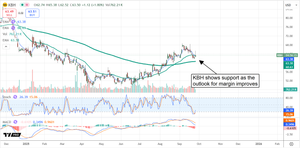KARACHI, PK / ACCESS Newswire / September 24, 2025 / Faiz e Islam, a leading Islamic research and educational initiative, has released new insights connecting the timeless wisdom of Surah Yasin with the principles of Islamic finance, underscoring its relevance in today's global economic system.

Often referred to as the "Heart of the Quran", Surah Yasin emphasizes divine justice, accountability, and the balance of human conduct-concepts that align closely with the foundation of Islamic finance. Unlike conventional systems that frequently prioritize profit above ethics, Islamic finance stresses fairness, risk-sharing, and social responsibility.
Ethics and Justice at the Core of Finance
Islamic finance, rooted in the Quran and Sunnah, views wealth as a trust from Allah (SWT) rather than personal ownership. "That Day no soul will be wronged at all, and you will not be recompensed except for what you used to do." (Surah Yasin 36:54) reminds believers that economic dealings are subject to divine accountability. This perspective makes justice (‘Adl) the cornerstone of financial systems, prohibiting exploitation, riba (interest), and unjust enrichment.
Prohibition of Riba and Emphasis on Social Welfare
The Quran strictly forbids riba, a practice widely seen in conventional banking, due to its exploitative nature. Surah Yasin reinforces accountability in financial dealings and the moral responsibility to support vulnerable members of society. The emphasis on zakat (almsgiving) and sadaqah (voluntary charity) ensures that wealth circulates fairly and benefits entire communities.
Sustainability and Ethical Investments
Beyond interest-free models, Islamic finance encourages ethical and sustainable investments. Surah Yasin points to the sacredness of creation: "And a sign for them is the dead earth: We give it life and We bring forth from it grain, so from it they eat." (36:33). This principle resonates with modern calls for environmental responsibility and sustainable development.
Global Relevance and Growth
According to the Islamic Financial Services Board (IFSB), the global Islamic finance industry surpassed $3 trillion in assets by 2023, expanding beyond Muslim-majority countries into Europe, the UK, and the US. Studies suggest that Islamic finance demonstrates greater resilience during crises, such as the 2008 financial meltdown, due to its risk-sharing and anti-speculative foundations.
A Timeless Framework for Modern Challenges
"Surah Yasin offers not only spiritual guidance but also a roadmap for just economic systems," said a spokesperson for Faiz e Islam. "By applying its principles to modern financial practices, we can foster fairness, accountability, and shared prosperity in a world plagued by inequality and financial instability."
Faiz e Islam's research initiative encourages scholars, economists, and community leaders to revisit Qur'anic wisdom as a solution to today's financial and ethical challenges.
About Faiz e Islam
Faiz e Islam is an Islamic research and education platform dedicated to promoting Qur'anic wisdom and its applications in contemporary life. Through publications, lectures, and community outreach, Faiz e Islam aims to inspire ethical living and justice-driven systems across society.
Media Contact:
Company Name: Faiz e Islam
Contact Person: Abdul Moiz
Email: info@faizeislam.net
Website: https://faizeislam.net/
SOURCE: Faiz e Islam
View the original press release on ACCESS Newswire





